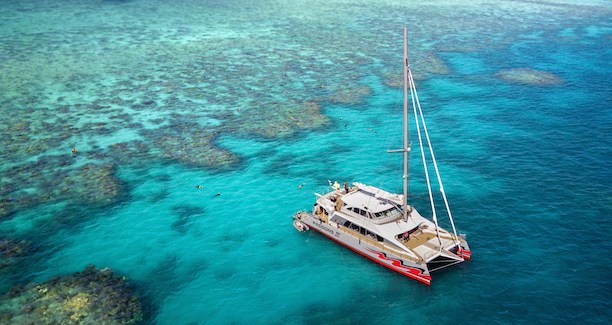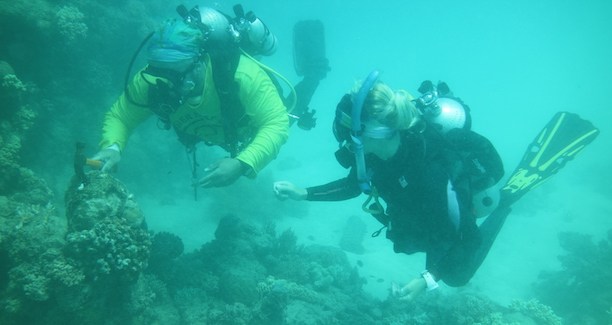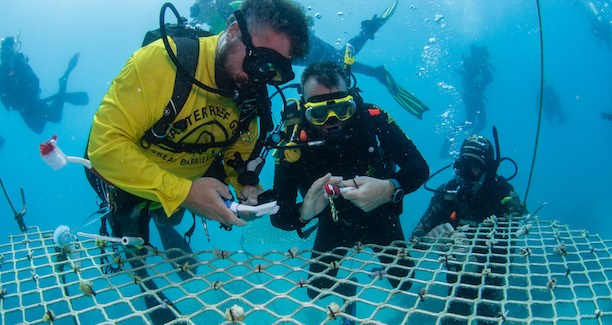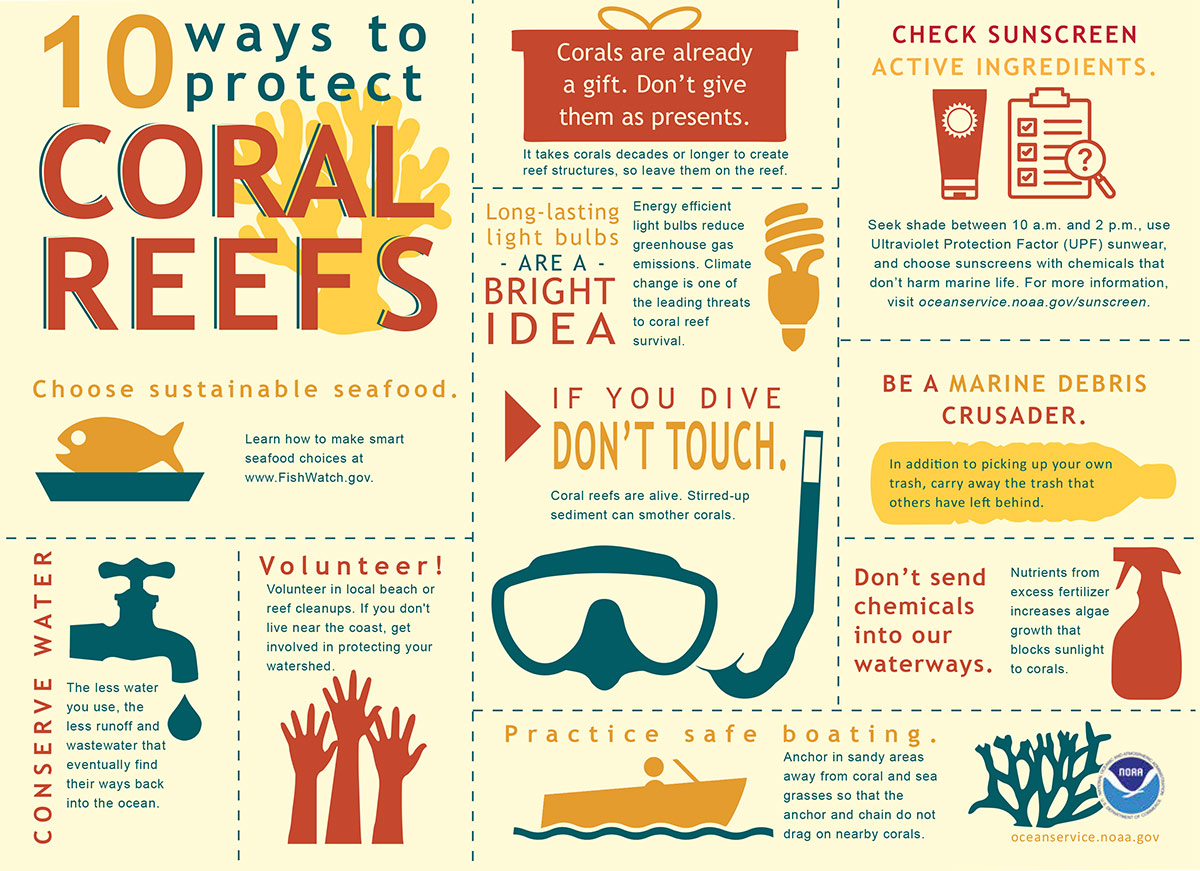
- Inspiring People -
- 5mins -
- 1,653 views
With No Tourists, Australian Scuba Tours Are Planting Coral Instead
Tour operators in Australia are giving back to the Great Barrier Reef by repurposing their idle vessels and staff for coral restoration missions.
Australian Scuba Tours Are Planting Coral While With Tourists Stay Home
While Australia’s tourism economy is at a standstill, the country’s tour boats sit empty in the harbours. Now, some of those companies are repurposing their idle vessels — and staff — for coral restoration missions along the Great Barrier Reef.

Passions of Paradise donated a state-of-the-art catamaran, fuel and crew
The staff of one Australian dive tour operator, Passions of Paradise, have volunteered to give the ocean some extra care and attention by planting coral on the Great Barrier Reef after the family-owned Cairns business stopped running tours in the wake of the coronavirus pandemic.
Chief Executive Officer Scott Garden told travel industry publisher Karryon that the company had donated their state-of-the-art catamaran Passions III and fuel to take four enthusiastic crew and a scientist to Hastings Reef for the Coral Nurture Program.
“We have been assisting Dr. David Suggett’s team from the University of Technology Sydney who is conducting reef resilience research at one of our 26 reef sites,” he told Karryon’s Samantha Smith.
“I have been working with Passions of Paradise Environmental Sustainability Coordinator Russell Hosp at the site most weeks recording data for the project and establishing a coral nursery.”
Mr. Hosp and Passions of Paradise marine biologist Kirsty Whitman, who are both Master Reef Guides, are keen to help advance the project as volunteers while the business is closed.
Project coordinator and PhD student Lorna Howlett said Passions of Paradise was one of five Cairns and Port Douglas reef companies participating, with Wavelength, Ocean Freedom, Sailaway and Quicksilver Cruises also involved.
Source: Karryon.com.au

The Coral Nurture Program: about 1000 pieces of coral have been planted
Lorna Howlett, Project coordinator, and PhD student, told Karryon:
“The Coral Nurture Program aims to give operators yet another stewardship activity they can do at their reef sites in addition to Crown-of-Thorns eradication and the Eye on Reef monitoring program,”
“There are two new things about this program. It is the first time on the Great Barrier Reef that tourism operators have worked alongside researchers and the first time that a coral clip has been used to attach corals to the reef.”
“It involves finding fragments of opportunity – coral fragments that have naturally broken off – and attaching them back on to the reef using a coral clip. We can only use fragments of opportunity found at the site, so Passions of Paradise has installed six frames at the site which can be used as a nursery to grow more corals.”
“Once they find a coral fragment they attach it to the nursery to grow and as it grows they can take fragments from it to attach to the reef giving them a continual source of new corals. The 12-month project finishes next month, however, the operators can continue to operate the nurseries and outplant the corals.”
Mr. Garden said about 1000 pieces of coral had been planted on Hastings Reef.
“When tours resume passengers will be able to snorkel over the site which boasts healthy marine life and corals near the nursery,”
“Passions of Paradise is committed to preserving the World Heritage Area that sustains our locally-owned business through a number of initiatives including being carbon neutral.”
Source: Karryon.com.au

Here are 10 ways you can help protect coral reefs
Even if you live far from coral reefs, you can have an impact on reef health and conservation.
- Choose sustainable seafood. Learn how to make smart seafood choices at www.fishwatch.gov.
- Conserve Water. The less water you use, the less runoff and wastewater that eventually find their ways back into the ocean.
- Volunteer. Volunteer in local beach or reef cleanups. If you don’t live near the coast, get involved in protecting your watershed.
- Corals are already a gift. Don’t give them as presents. It takes corals decades or longer to create reef structures, so leave them on the reef.
- Long-lasting light bulbs are a bright idea. Energy efficient light bulbs reduce greenhouse gas emissions. Climate change is one of the leading threats to coral reef survival.
- If you dive, don’t touch. Coral reefs are alive. Stirred-up sediment can smother corals.
- Check sunscreen active ingredients. Seek shade between 10 am & 2 pm, use Ultraviolet Protection Factor (UPF) sunwear, and choose sunscreens with chemicals that don’t harm marine life. For more information, visit oceanservice.noaa.gov/sunscreen
- Be a marine crusader. In addition to picking up your own trash, carry away the trash that others have left behind.
- Don’t send chemicals into our waterways. Nutrients from excess fertiliser increases algae growth that blocks sunlight to corals.
- Practice safe boating. Anchor in sandy areas away from coral and sea grasses so that the anchor and chain do not drag on nearby corals.
There are also many things you can do to ensure that you are environmentally conscious when you visit coral reefs or coastal areas. These include things such as hiring local guides to support the economy, removing all trash from an area, never touching or harassing wildlife in reef areas, and avoiding dropping your boat anchor or chain nearby a coral reef.
Finally, stay informed and spread the word! Educate yourself about why healthy coral reefs are valuable to the people, fish, plants, and animals that depend on them. Your excitement will help others get involved.
Source: OceanService.noaa.gov


